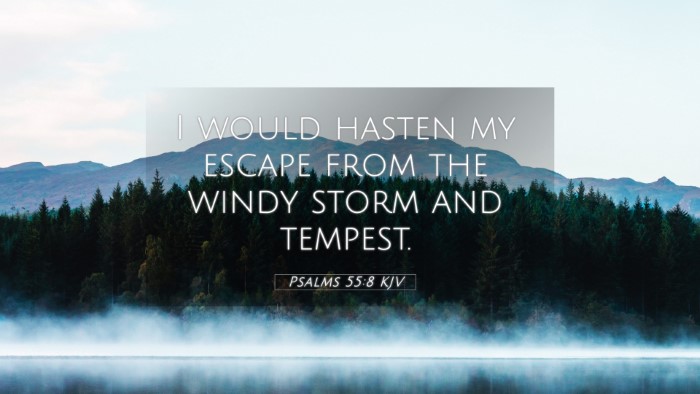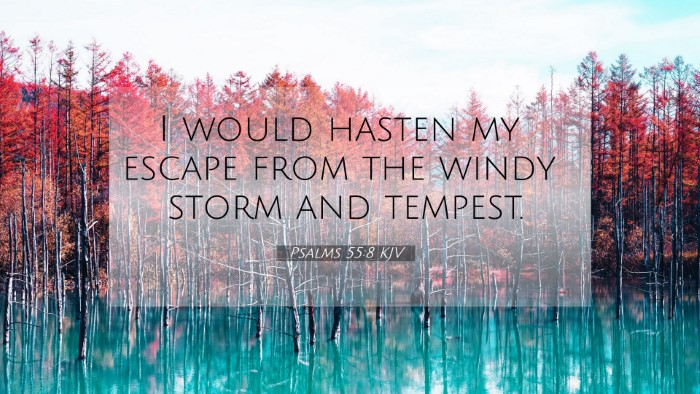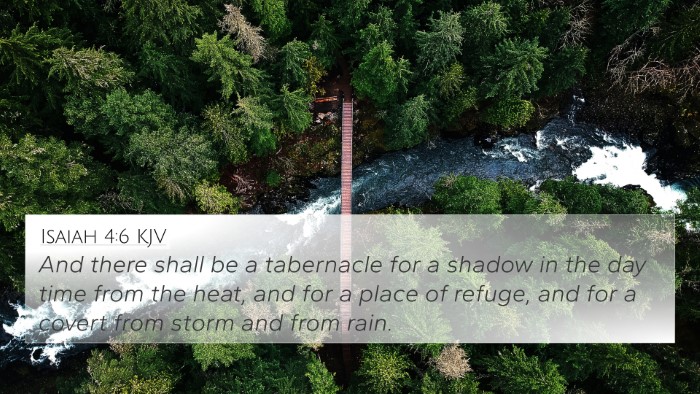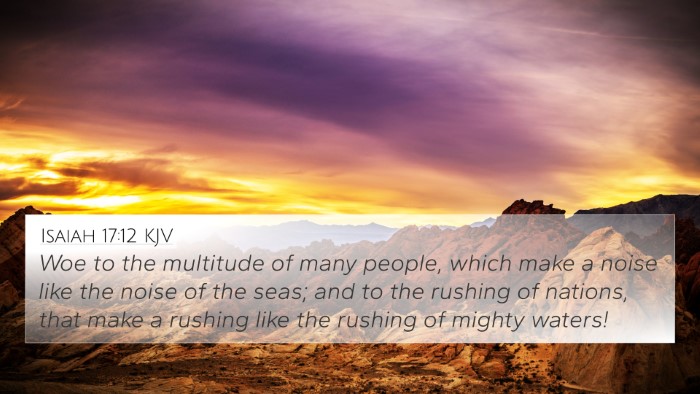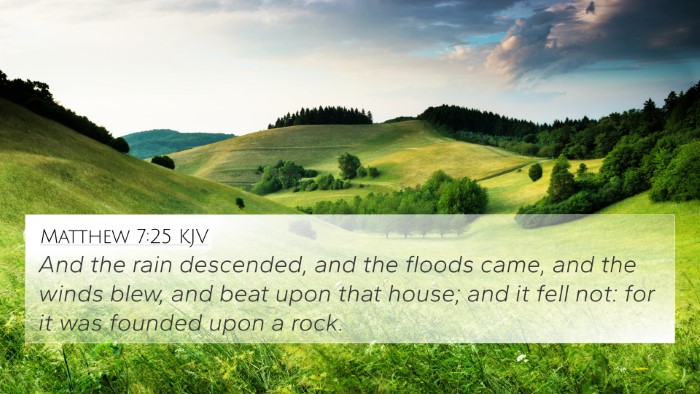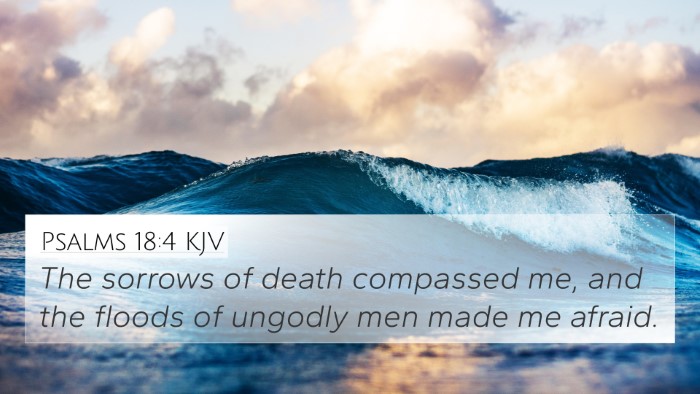Psalms 55:8 Explained
Psalms 55:8: "I would hasten my escape from the windy storm and tempest."
This verse from Psalms reflects a deep longing for safety amidst turmoil and chaos. The psalmist expresses a desire to flee from overwhelming troubles symbolized by "the windy storm and tempest." This imagery conveys the tumultuous nature of the challenges faced and the urgent need for deliverance.
Interpretative Insights
- Matthew Henry Commentary:
Henry notes that the psalmist's flight reflects a human instinct to seek refuge in times of distress. The metaphor of a storm signifies not just physical danger, but emotional and spiritual trials as well.
- Albert Barnes Commentary:
Barnes emphasizes the need for intervention from God. The verse encapsulates the feelings of anxiety and fear in the midst of adversities, indicating a profound reliance on divine deliverance.
- Adam Clarke Commentary:
Clarke elaborates on the idea of swift departure, likening it to a person's natural response to flee from danger. The "storm" symbolizes the trials inflicted by adversaries, suggesting that true peace is found in God.
Connections Between Bible Verses
Psalm 55:8 can be explored deeply through various cross-references that illuminate similar themes of distress, urgency, and the quest for divine protection. Here are some notable connections:
- Psalm 46:1: "God is our refuge and strength, a very present help in trouble." - This verse highlights God as a sanctuary in times of chaos.
- Psalm 57:1: "Be merciful to me, O God, be merciful to me; for my soul trusts in You." - Here, the plea for mercy evokes the same urgency found in Psalm 55:8.
- Matthew 8:24-26: The storm on the Sea of Galilee demonstrates Jesus’ calms of physical and emotional storms, resonating with the imagery of fleeing from tempest.
- 2 Corinthians 1:10: "He delivered us from such a deadly peril, and he will deliver us again." - This emphasizes God's ongoing role in deliverance amidst trials.
- Proverbs 18:10: "The name of the Lord is a strong tower; the righteous run to it and are safe." - This illustrates a sanctuary in God amidst peril, akin to fleeing to safety.
- Isaiah 43:2: "When you pass through the waters, I will be with you; and through the rivers, they shall not overwhelm you." - This affirms God’s presence in times of distress, reinforcing themes found in Psalm 55:8.
- Hebrews 6:18: "We who have fled to take hold of the hope set before us may be greatly encouraged." - Discussing fleeing in hope aligns with the urgency found in the psalmist's desire for escape.
Thematic Bible Verse Connections
The themes of urgency, protection, and refuge in God are prevalent throughout the Scriptures, providing rich ground for comparative analysis:
- Fleeing from Enemy Pursuit: 1 Samuel 21:10 indicates David fleeing from Saul, paralleling the need for sanctuary in the face of danger.
- Seeking Refuge in God: Psalms 91:1-2 discusses the safety found under God’s wings, reinforcing the sentiment of fleeing to safety.
- God’s Deliverance from Distress: Luke 4:18 demonstrates Jesus' mission to bring good news to the afflicted, mirroring the psalmist's cry for help.
Conclusion
Psalms 55:8 serves as a profound reminder of the innate human desire for safety and the refuge found in God amidst chaos. The cross-references reveal a deep inter-Biblical dialogue emphasizing God's protective nature and the importance of seeking Him during life's tempests.
For those studying the Bible, utilizing tools for cross-referencing can yield richer insights and connections, helping believers to see the overarching narrative of God's deliverance across the Scriptures.
Tools for Bible Cross-Referencing
As you continue to explore Psalms 55:8 and its related verses, consider employing various resources:
• Bible Concordance
• Cross-reference Bible Study Guides
• Online Bible Cross-reference Tools
• Comprehensive Bible Cross-reference Materials
Final Thoughts
Understanding scripture requires not only reading but also connecting themes and verses. Psalms 55:8 exemplifies the beauty of these connections, inviting deeper reflection on the nature of God as a refuge. Through comparative Bible verse analysis and thematic connections, believers can better grasp the meaningful message God communicates through His Word.

